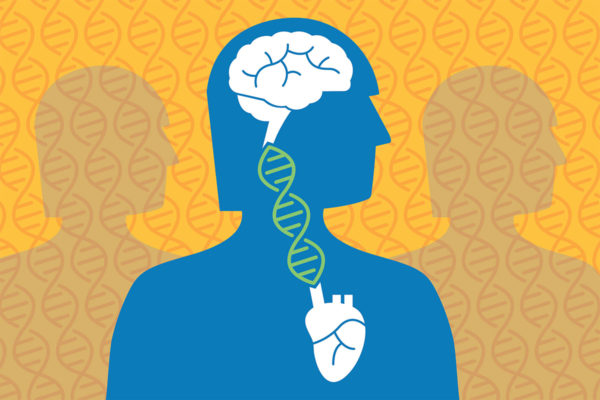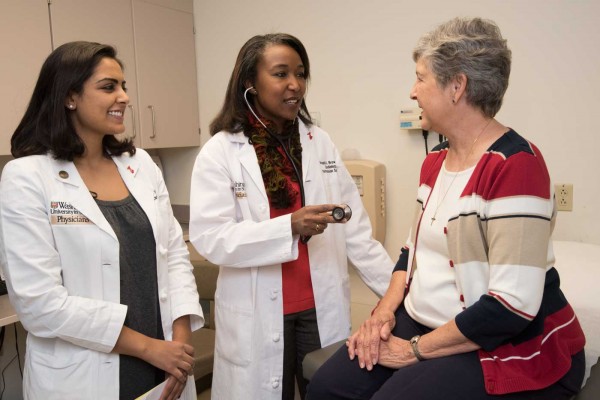Cardiovascular disease, Alzheimer’s genetically linked
In the largest genetic study of Alzheimer’s disease, researchers at the School of Medicine and the University of California, San Francisco, have found that genes that increase risk of cardiovascular disease also heighten the risk for Alzheimer’s.
Washington People: Angela L. Brown
Angela L. Brown, MD, associate professor of medicine, leads the Hypertension Clinic at Washington University School of Medicine. Brown has devoted her career to helping patients control their hypertension and to training medical professionals in how to care for such patients.
Diabetes drug may reduce heart attack risk in HIV patients
A diabetes drug may have benefits beyond lower blood sugar in patients with HIV. New research from the laboratory of Kevin E. Yarasheski, PhD, suggests the drug may prevent cardiovascular problems because it works to reduce inflammation that is linked to heart disease and stroke in these patients. The drug both improved metabolism and reduced inflammation in HIV-positive adults on antiretroviral therapy.
Trial to study whether statins reduce strokes, heart attacks in HIV patients
The Washington University AIDS Clinical Trials Unit is the first in the nation to open a clinical trial evaluating whether statins reduce heart attacks and strokes in patients with human immunodeficiency virus (HIV).
Study: Most respond well to genetic testing results
People at high risk for psychological distress respond positively to receiving results of personalized genetic testing, according to new research at Washington University School of Medicine in St. Louis. More than 60 percent of subjects in the genetic study wanted information about their test results, and 95 percent said they appreciated receiving the information, regardless of whether the results were good or bad news.
$8 million to study gene-lifestyle interactions on heart health
School of Medicine researchers have received an $8 million grant to investigate the genetic and environmental roots of cardiovascular disease risk factors. The four-year grant will support the first large-scale, multiethnic statistical analysis of risk factors for cardiovascular disease that looks at lifestyle interactions with genes. Shown are principal investigators D.C. Rao, PhD, and Ingrid Borecki, PhD.
Smoking may dull obese women’s ability to taste fat and sugar
People who smoke also tend to eat more high-fat foods. So do obese people. Now, a team of researchers, including M. Yanina Pepino, PhD, at the School of Medicine, has found that obese women who also smoke have a difficult time perceiving fat and sweetness in their food. And that could lead them to eat even more fatty foods.
Fuel smoke linked to cardiovascular issues
Burning biomass for cooking and heating, a common practice of rural people in developing countries, has been linked to an increase in cardiovascular problems.
Well-controlled HIV doesn’t affect heart metabolism, function
People with HIV often develop blood sugar and
lipid problems and other metabolic complications that increase heart disease risk. New research at Washington University School of Medicine in St. Louis shows that the HIV virus and the drugs used to treat it don’t worsen heart metabolism and function in these patients.
p, ,
{margin:0in;margin-bottom:.0001pt;font-size:12.0pt;font-family:Cambria;}
div.WordSection1
{page:WordSection1;}
‘Healthy’ patients at high risk of cardiac death identified
The way the heart responds to an early beat is predictive of cardiac death, especially for people with no conventional markers of cardiovascular disease, according to new research from Washington University School of Medicine in St. Louis.
View More Stories


